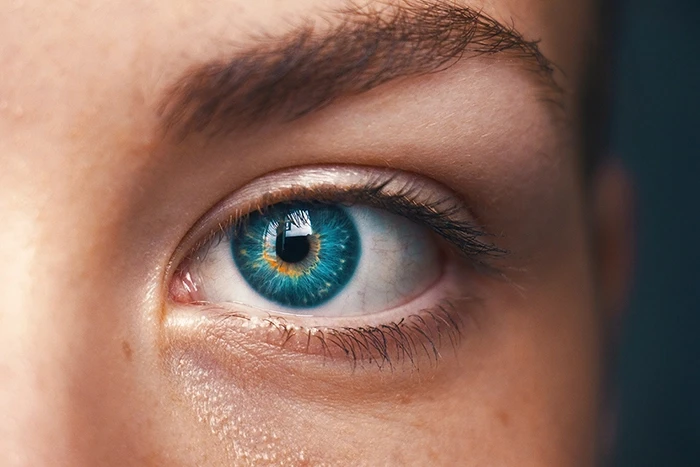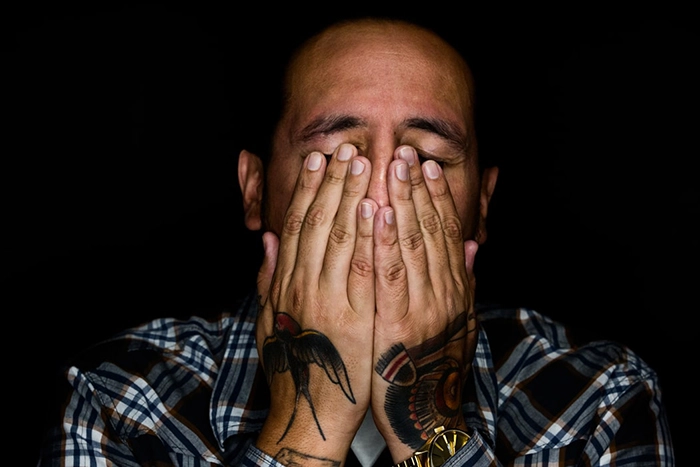If you have private health cover with Allianz, BUPA Australia, Medibank, or NIB, Please talk to our staff to check your eligibility.
Click here for private health insuranceThere's Something in My Eye
The Most Common Eye Problems and How to Recognize Them

Eyes are delicate, and when something feels not-quite-right, it can be cause for concern.
If you feel like there’s something in your eye – or you are experiencing another discomfort in that area – you’ve landed in the right place. In this article, we’ll discuss the most common eye problems, including:
- Itching
- Redness
- Foreign objects in the eye
- Burning
- Pain
- Blurred vision

We’ll share how to recognize your symptoms so you can decide whether or not to contact a trusted doctor for further attention. Let’s get started.
Itchy eyes
An itching sensation in the eyes can be extremely annoying, and in some cases, can make it difficult to keep your eyes open. Typically, any itching in the eye is caused by an allergy of some sort and can be remedied with over-the-counter antihistamine medication and lubricating eye drops. A cold compress (a washcloth dampened with cold water, for example) can also help relieve symptoms.

More severe eye itchiness may require prescription eye drops. You might like to schedule an appointment with your healthcare practitioner for advice.
If it’s your eyelids – not the eye itself – that is red, inflamed, and itchy, you could have a condition called blepharitis. Visit your doctor for a diagnosis and a suitable treatment.
Take action now:
Avoid rubbing the eye area. Doing so releases chemicals that can make the area feel even itchier!Red eyes
Redness in and around the eyes can be caused by a whole host of factors. Let’s take a look at some of the most common.Pink eye
Pink eye – also known as conjunctivitis – is a condition typically found in children, though adults can get it too. Symptoms include swelling, redness, itchiness, burning, and watering. Some forms of conjunctivitis are contagious, so it’s best to seek treatment as soon as possible.Allergies
Allergies typically flare-up in the springtime but can be present year-round. If you come into contact with something you are allergic to – whether that is cats, fumes, dust, mold, or pollen – your eyes could become red and itchy. An oral antihistamine should help relieve symptoms. If not, visit your doctor and ask them about your prescription options.Broken blood vessel
Tiny blood vessels in the white of the eye (sclera) can become broken following extended periods of eye strain, excessive rubbing, or for no reason at all. When blood vessels break, the eye will become bright red – this is called a subconjunctival haemorrhage. A red-eye caused by a subconjunctival haemorrhage looks scary but is typically harmless.
Take action now:
Although a subconjunctival haemorrhage shouldn’t cause any damage, schedule an appointment with your GP now. It’s better to be safe than sorry.Eye trauma
If you are hit in the eye, you will most likely experience redness, acute pain, and even blurred vision. There could also be hidden damage in the eye, such as a detached retina. This can be very serious. If you suffer this kind of trauma, seek professional treatment as soon as possible.Take action now:
If you have experienced eye trauma, do not rub your eye under any circumstances. For light relief, apply a cold compress or ice pack to the area.Foreign objects in the eye
Having a foreign object in your eye can be incredibly painful. Seek attention right away – especially if it’s a sharp object like a thorn or piece of metal. Do not try and remove it yourself, or you could risk causing more damage. Instead, keep the eye closed. If you have one, put an eye shield over the affected eye.Take action now:
Not everything that finds its way into your eye requires urgent attention. If it’s just a piece of dust or an eyelash that’s bothering your eyes, rinse it out using a saline solution or lubricating eye drops.Burning eyes
Usually, burning eyes are caused by one of the following:- Tiredness
- Allergies
- Dry eyes
- Vision stress (for example, after spending a long time working on the computer)
In most cases, burning eyes are not an emergency and will subside on their own. If the burning persists or becomes unbearable, visit your doctor.
Take action now:
Over-the-counter lubricating eye drops can relieve burning sensations. A cool, moist compress held over the eyes can assist, too.Eye pain
There are many different types of eye pain: sharp, dull, constant, intermittent, throbbing, stabbing, internal, and external.
Generally, if you are experiencing severe eye pain alongside eye redress, see your doctor immediately. Continual eye pain that worsens when moving the eyes to the side, or when gently pressing on the eye area, maybe symptoms of internal inflammation. Seek a diagnosis right away.
Eye pain paired with blurred vision is considered an emergency. Visit your doctor or the emergency department.
Take action now:
If there is no redness and your eye pain is dull and feels a lot like a headache, your eyes are probably tired and strained. Try taking paracetamol and resting.Blurred vision
Blurred vision can be a sign of something serious. If the blurring is sudden and does not go away, visit your doctor as soon as possible.

If one eye becomes blurry or goes dark – imagine a curtain going down over one eye – seek urgent medical attention. This could indicate a retinal detachment – or worse.
If the blurring is minor and comes and goes, you could be overly tired, or your eyes could be dry or strained. Allergies can also cause a slight, temporary blurring of vision. These are not typically emergency situations.
Take action now:
If you are suffering from mild blurry vision, rest your eyes. Look into the distance and then take a nap. If the blurriness persists, make an appointment with your doctor or schedule an eye exam.Book an appointment with a trusted home doctor
Eye issues can make it difficult to drive. Save yourself the risk and let our team of friendly, qualified professionals come to you. Our home visit doctors are on-call after hours to help you identify and diagnose any eye problem you are dealing with.Schedule an appointment now or give us a call on 13 CURE (13 2873).

Name: Dr. Muhammad Mohsin, General Practitioner
University Degree: MBBS, AMC
Bio: Dr. Muhammad Mohsin completed his studies from University of Health Sciences, Lahore Pakistan in 2008. He came to Australia in 2012 and has worked as a resident and GP in various hospitals and medical centres across Australia. He has a particular interest in men's health, travels medicine, chronic disease management, and general family medicine.


